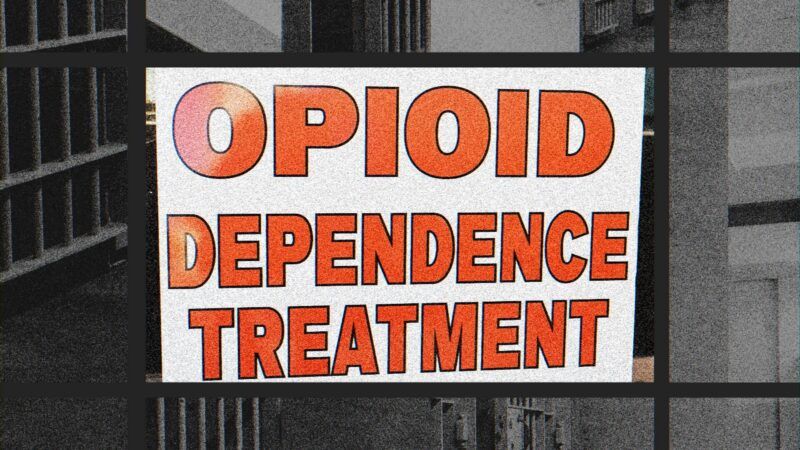This Jail Won't Provide Drug Addicts With Essential Meds
Inmates with opioid addiction suffered severe withdrawal after the Jefferson County Correctional Facility stripped them of their medication.

The New York Civil Liberties Union (NYCLU) filed a class action lawsuit this month against Jefferson County Correctional Facility, saying the jail denied inmates adequate access to medication for opioid use disorder.
The complaint alleges that Jefferson County Correctional Facility banned medications, like methadone and buprenorphine, to treat opioid addiction—a chronic lifelong disorder after repeated opioid use that includes relapses, disability, and death.
This lawsuit comes while the use of medications like methadone remains hotly debated for use in correctional settings. Of the nation's 3,100 municipal and county jails, only 120 offer methadone or buprenorphine to treat opioid addiction. Yet the ones who do offer such medication have had some noteworthy results. The Rhode Island Department of Corrections, for example, saw a 12 percent decrease in overdose deaths among incarcerated individuals after the state adopted policies to treat opioid addicts with methadone and buprenorphine.
One of the plaintiffs in the NYCLU lawsuit, referred to as T.G., said that prior to incarceration, trying to treat her addiction without medication proved fruitless and that she would often relapse. She eventually found a doctor who prescribed methadone, which T.G. credits with saving her life and says with consistent use stopped her drug cravings.
T.G.'s treatment and medication use were interrupted when she was arrested for a parole violation in 2020. The time she spent at the Jefferson County Correctional Facility was "extremely painful," according to her testimony. A nurse told her that there was no point in filing her grievances and that the jail did not provide methadone. "Without access to methadone, I immediately started experiencing withdrawal," said T.G. Withdrawal left her unable to keep food down, and led to a loss of appetite, nausea, and extreme pain.
Another plaintiff, referred to as M.C., said that methadone was a "game changer" in treating his opioid use disorder, which he claims keeps him from relapsing. Each time M.C. was released from jail in the past he went back to using opioids due to the severity of his withdrawal, according to his testimony. "But twice since I started receiving methadone, my treatment was disrupted by incarceration…the withdrawal I went through was awful beyond imagination—much, much worse than even withdrawing from heroin," he said.
Patients suffering from withdrawal in jail or prison are seven times less likely to continue their medication afterward, said Richard Rosenthal, a doctor specializing in addiction who provided expert testimony, according to the suit. Rosenthal also notes that withdrawal lowers a drug addict's tolerance, making them more likely to suffer fatal overdoses.
NYCLU senior staff attorney Antony Gemmell tells Reason the organization won a similar lawsuit in the U.S. District Court for the Northern District of New York, but the case accomplished little. The district court did recognize that withholding medication for opioid use disorder can expose someone to risk of death. But the county jail only provided medication for opioid use disorder for the one plaintiff, listed as P.G., in that particular case rather than doing so for the rest of inmates suffering from the same affliction.
"Our hope in filing P.G.'s case was the jail would see the writing on the wall and reform itself…[it] has done quite the opposite," says Gemmell.


Show Comments (19)